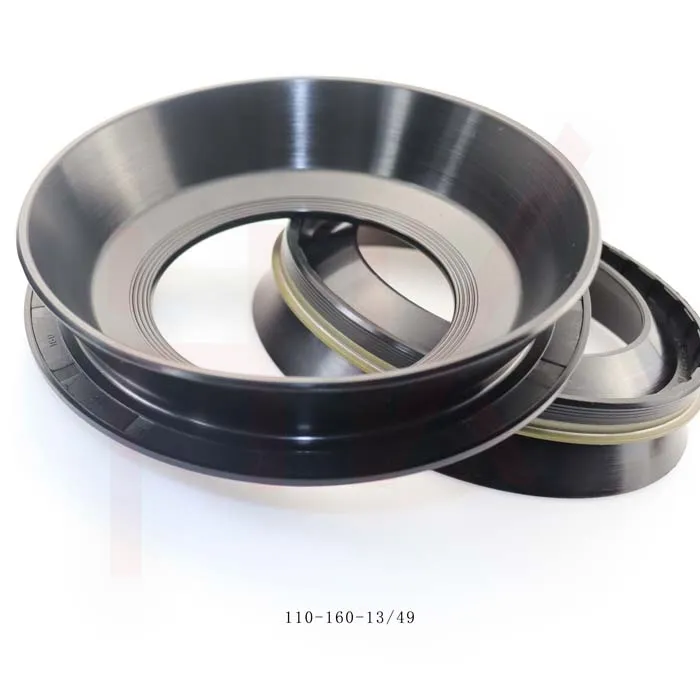Dec . 01, 2024 13:47 Back to list
hydraulic ram oil seals
Understanding Hydraulic Ram Oil Seals Importance, Types, and Maintenance
Hydraulic systems play a pivotal role in modern machinery and equipment, providing power and precision across various applications. One critical component in these systems is the hydraulic ram, which relies on the efficient functioning of oil seals to ensure optimal performance. This article will explore the significance of hydraulic ram oil seals, their types, and essential maintenance practices.
The Significance of Oil Seals in Hydraulic Rams
Hydraulic rams operate by transmitting pressurized oil, which facilitates smooth and controlled movement. The role of oil seals in this operation cannot be overstated; they are designed to prevent fluid leakage, maintain pressure, and protect internal components from contaminants. A compromised oil seal can lead to a cascade of issues, such as reduced efficiency, increased wear on moving parts, and potential system failure. Thus, understanding the importance of these seals is paramount for anyone working with hydraulic systems.
Types of Hydraulic Ram Oil Seals
There are various types of oil seals used in hydraulic rams, each suited to different applications
. Some common types include1. Nitrile Rubber Seals Nitrile rubber is a widely used material in hydraulic oil seals due to its excellent resistance to oil and fuel. These seals are versatile and can function effectively in a wide range of temperatures, making them a popular choice in many hydraulic applications.
2. Polyurethane Seals Known for their durability, polyurethane seals can withstand high pressure and extreme temperatures. They are particularly effective in environments that experience heavy wear and tear, making them suitable for heavy-duty hydraulic rams.
3. Viton Seals Viton, a brand of fluoroelastomer, offers superior resistance to high temperatures and aggressive chemicals. These seals are often used in specialized applications where conventional materials would fail, such as in high-performance hydraulic systems.
4. PTFE Seals Polytetrafluoroethylene (PTFE) seals are favored for their low friction properties and excellent chemical resistance. They are ideal for applications involving corrosive fluids and can significantly enhance the performance and longevity of hydraulic rams.
hydraulic ram oil seals

5. Specialized Seals Depending on the application, there are also customized seals designed for specific operational requirements, such as high-temperature scenarios or unique system designs.
Maintenance of Hydraulic Ram Oil Seals
To ensure the lasting performance and reliability of hydraulic ram oil seals, regular maintenance is essential. Here are some best practices for effective maintenance
1. Regular Inspections Routine checks can help identify signs of wear, damage, or leakage before they escalate into significant issues. Inspect seals for cracks, abrasions, or signs of excessive wear.
2. Proper Lubrication Ensure that the seals are adequately lubricated with the appropriate hydraulic oil. This helps to reduce friction and wear while promoting smooth operation.
3. Temperature Management Monitor the operating temperature of the hydraulic system. Excessive heat can degrade seals over time, so implementing cooling measures, if necessary, is advisable.
4. Contamination Prevention Contaminants can significantly damage oil seals. Ensure that the hydraulic system is kept clean, and use filters where appropriate to prevent foreign particles from entering the system.
5. Timely Replacement Even with proper maintenance, oil seals will wear out over time. Be prepared to replace seals as part of regular maintenance schedules to prevent unexpected failures.
Conclusion
Hydraulic ram oil seals are an integral part of hydraulics, directly impacting the efficiency and longevity of the system. Understanding their types, functions, and maintenance is crucial for anyone involved in the maintenance or operation of hydraulic systems. By prioritizing the health of hydraulic ram oil seals, operators can ensure reduced downtime, lower maintenance costs, and optimal performance of their machinery.
-
TCN Oil Seal Metal Ring Reinforcement for Heavy Machinery
NewsJul.25,2025
-
Rotary Lip Seal Spring-Loaded Design for High-Speed Applications
NewsJul.25,2025
-
Hydraulic Cylinder Seals Polyurethane Material for High-Impact Jobs
NewsJul.25,2025
-
High Pressure Oil Seal Polyurethane Coating Wear Resistance
NewsJul.25,2025
-
Dust Proof Seal Double Lip Design for Construction Equipment
NewsJul.25,2025
-
Hub Seal Polyurethane Wear Resistance in Agricultural Vehicles
NewsJul.25,2025
-
The Trans-formative Journey of Wheel Hub Oil Seals
NewsJun.06,2025
Products categories
















